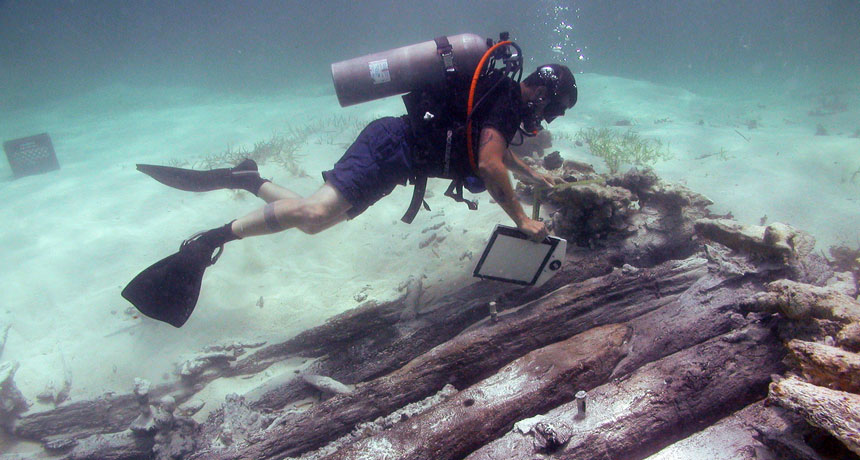Questions for ‘Diving deep into history’

Underwater archaeologists dig up the remains of the past. This wood is what’s left of the hull of the Trouvadore. This Spanish ship had transported slaves in the early 1800s to the British Indies.
Search for the Slave Ship Trouvadore/NOAA